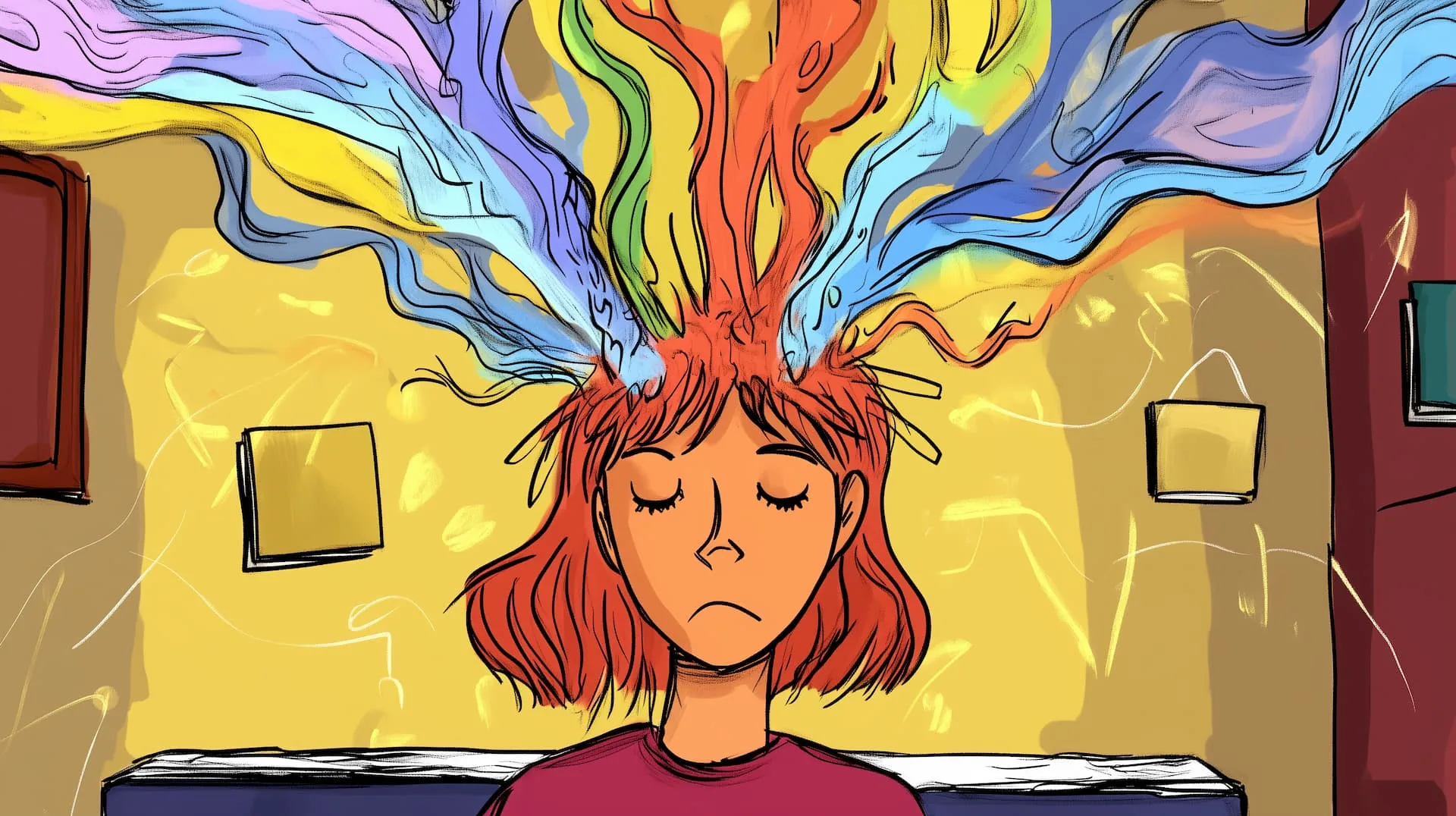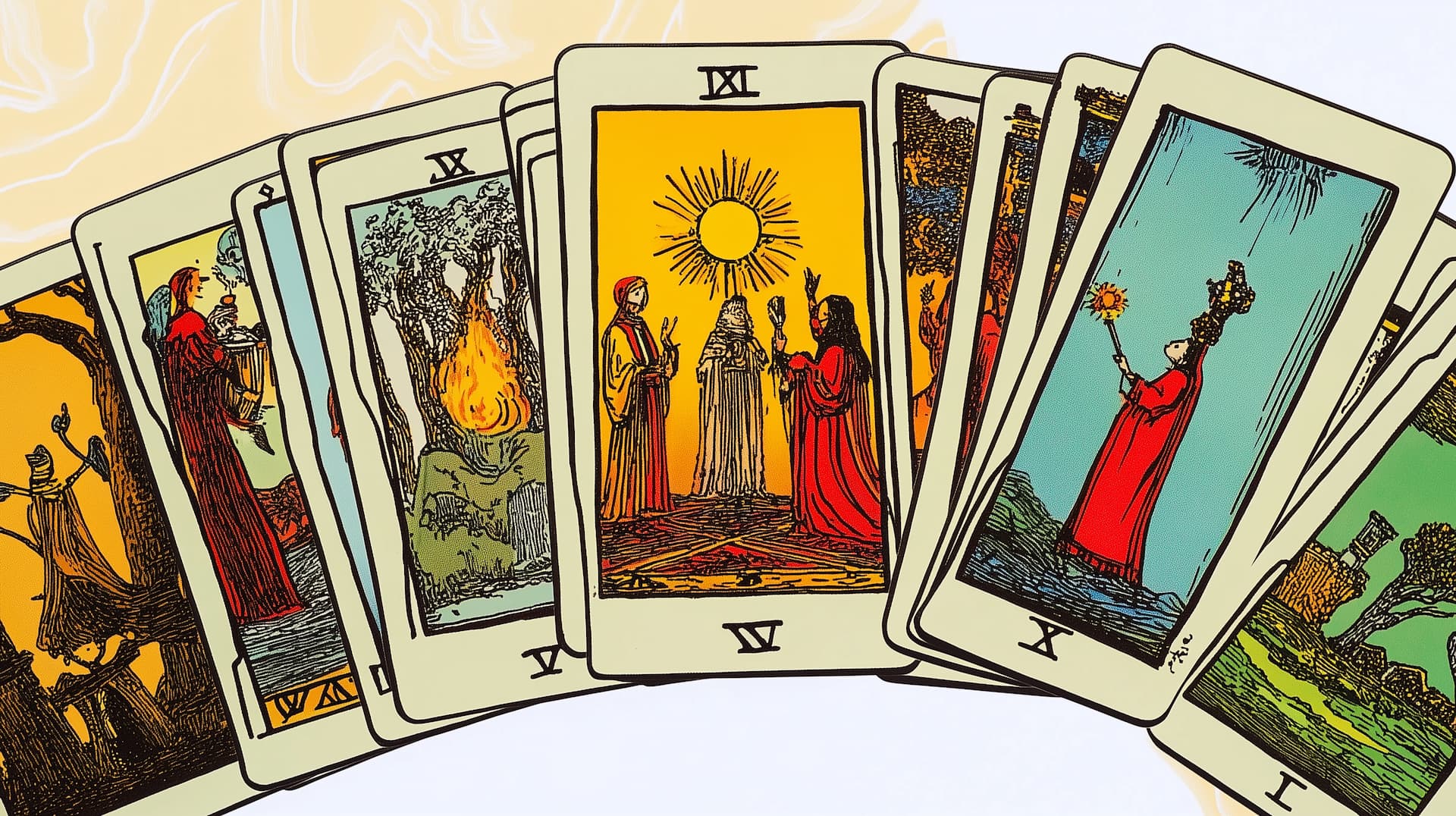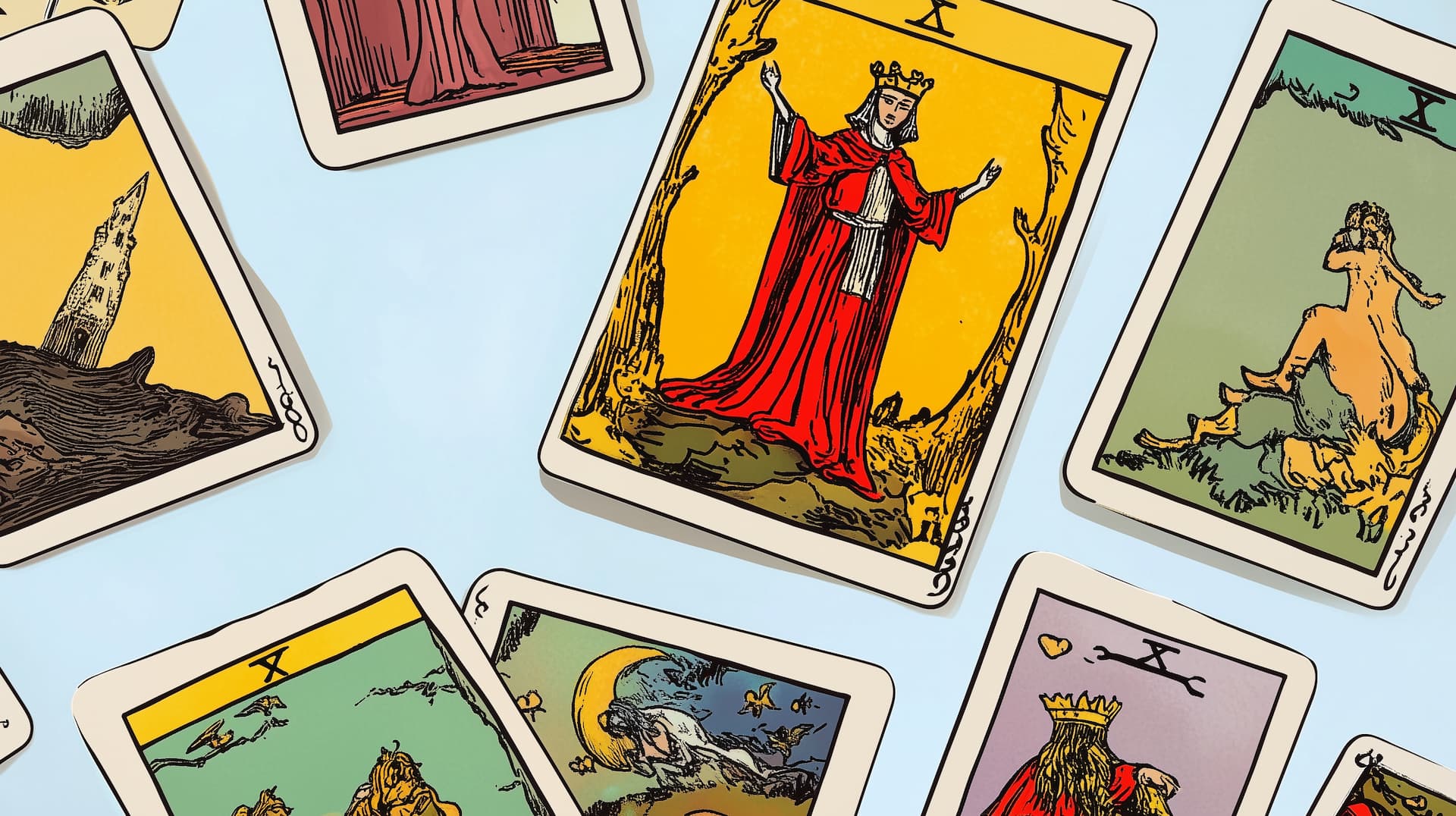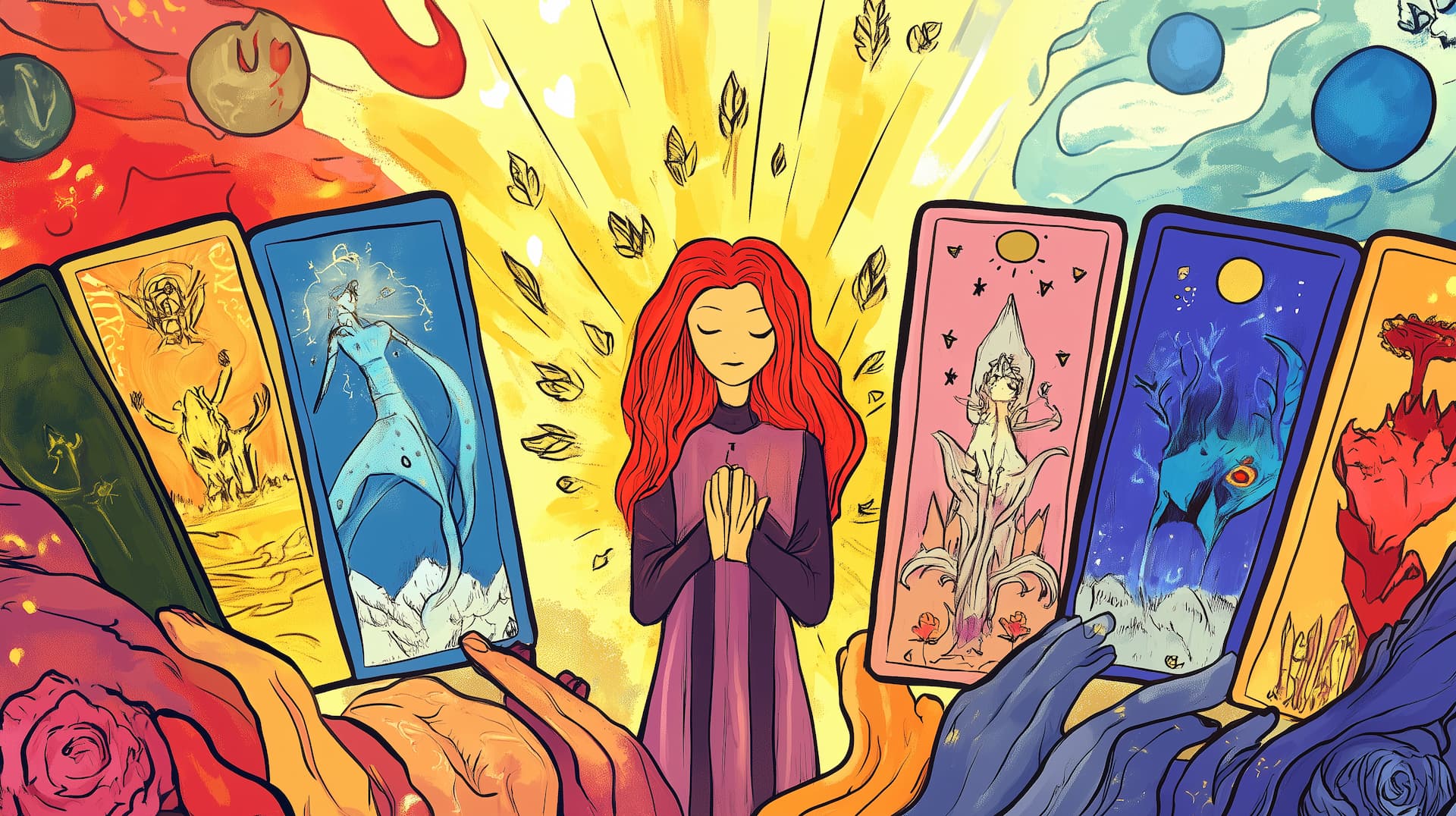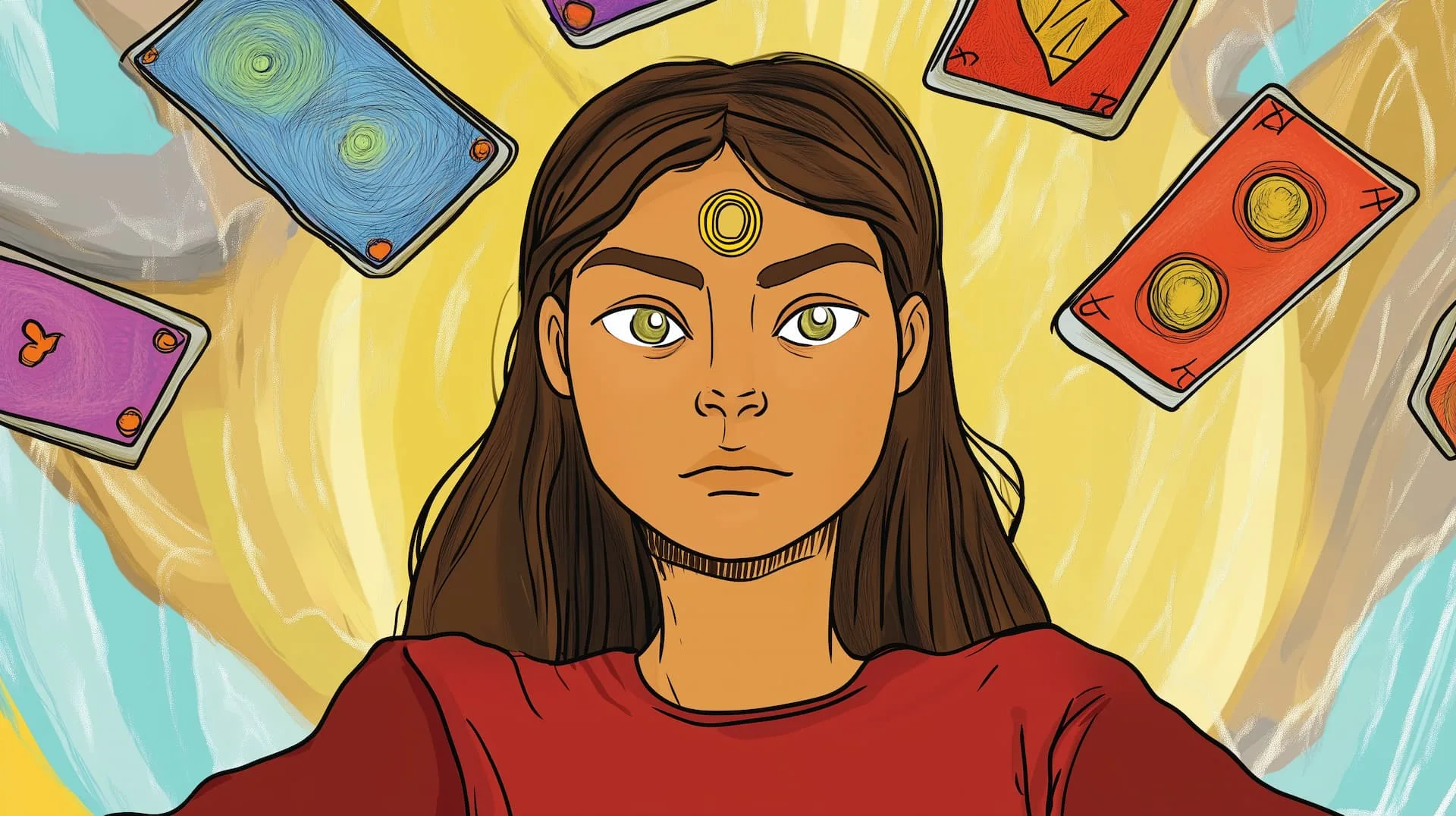
Unless they’re really passionate about tarot cards and their meanings, a lot of people don’t necessarily care where they come from, what they do or what kind of insights they can offer. But then, there’s another category of people, the religious one who based on their books, believe that divination is evil.
So, are tarot cards evil? This perspective is pretty common among a few different religions. But at the same time, there’s no actual evidence. And who follows every rule in the smallest details anyway? These being said, let’s explore the so-called evil profile of tarot cards and how they can harm you.
Mystical? Maybe!
There are no doubts about it. A well organized religion will most likely reject divination ideas, such as fortune telling or practices like tarot. It’s a mystical experience that most religions disagree with because they simply have no trust.
While there are certainly many divination stories in religion, such as people getting divine revelations, religious people expect these modern divination events to occur just like described in books or religious texts.
There’s nothing wrong with that if you think about it. Besides, if you follow history and cults, you may have heard of people claiming to have some sort of revelations. They gained a following but in the long run, their actions were proven harmful to those around them.
Despite being around for centuries, tarot is still considered a modern form of divination from a religious point of view. This means the insights you get in a reading could challenge some of the existing dogma in religion.
The more familiar people become with tarot cards, the more they trust them. They believe everything is true, but they sometimes fail to understand that interpretations should be subjective and vary from one person to another. Different situations require different interpretations, simple as that.
On the other hand, skeptical people want to see some sort of evidence.
Unless you experience a mystical experience yourself, you won’t believe in it, even if others can swear they’ve been through it.
Seeing some sort of evidence is a normal request, mainly because it’s extremely easy for people to lie about something.
Despite all these, every type of religion requires people to connect to a sacred realm. Christians, for instance, tend to pray. Buddhists, on the other hand, meditate. People pray and connect in different ways. Those who believe in tarot cards simply draw cards to receive messages from the universe.
From this point of view, unless tarot is used for evil purposes, there’s nothing wrong with it.
Too Many Misunderstandings
Like other forms of divination, tarot cards are also targeted by numerous misconceptions and misunderstandings.
While its history isn’t crystal clear, some believe that tarot cards are linked to Egypt or Italy. They often associated it with pagan religions and beliefs.
But if you look at it, tarot is simply a derivation of an Italian card game known as tarocchi and popular during the medieval ages.
The divinatory elements of tarot cards kicked in later, as they gained influences from the renaissance. Most of these associations were brought in by Christians. In fact, that’s why you’re likely to notice Christian associations in many cards. Take the Devil, for instance, or perhaps the Judgment card.
Tarot relies on symbolism to transfer messages. There are certainly some archetypes in it and they can reflect over your life as well.
Furthermore, compared to other forms of divination, tarot is quite unique. It wasn’t too common before the printing press came to life. Today, it’s widely accessible to everyone, meaning anyone can learn meanings and interpretations.
Later on in history, it gained some Jewish Kabbalah influences as well.
Despite being common in the eastern side of the world, tarot has become extremely popular in the west lately. Even on the western side of the world, it was inspired from Christian influences. That’s why you’re more likely to see angels or universe, rather than different pagan gods.
This could be the reason wherefore many elements relate to your free will. In other words, no matter what the tarot card reader tells you, you always have the freedom to make decisions and change the outcome.
Demons have nothing to do with tarot cards. But then, are tarot cards evil? Given some cards, you’d think they are. Wrong. Tarot reading is mainly about personal development, growth and support with difficult decisions in life.
Tarot and Biblical Connotations
The tarot relies on a metaphysical procedure that’s inspired from practices mentioned in the Bible. For example, there are a few examples related to the casting of lots. That’s the idea of getting more things together, shuffling them and asking them which path to follow.
Whether you throw them in the air or you draw an element, the concept is the same. You’re basically asking the universe about the right direction.
In Leviticus 16:7, people cast lots to figure out which goat is ideal for a sacrifice. They’re undecided, so they seek help from divination. The practice was defined by Moses and was never banned, but widely accepted. Similarly, tarot cards use the same principle.
The same goes in Acts 1:23, when apostles need to determine who should replace Judas. What do they do? They cast lots, simple.
Again, this act is depicted as widely accepted in the Christian Bible. However, the Bible also mentions that divination procedures should not be used at all.
Tarot cards aren’t associated to any religion at all. They’re not meant to be Christian. But then, they feature many inspirations and conventions. While criticized by religions these days, it follows some conventions mentioned in holy books.
As a short final conclusion, are tarot cards evil? Normally, the practice is used for self growth. It boosts personal development and can help with difficult decisions and confusing situations. There’s nothing evil about all these things. After all, you’re only asking for some guidance.
Despite being contraindicated by religion, many tarot readers these days are actually religious anyway, but they interpret things in their own ways.
